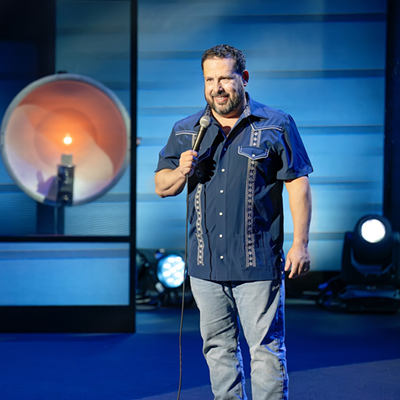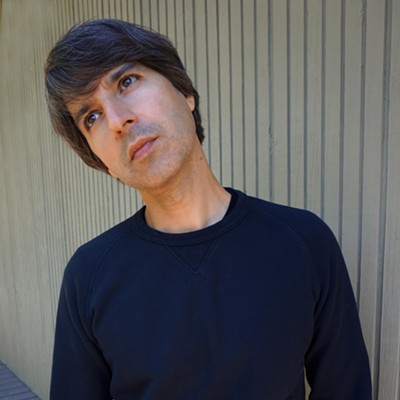Two questions popped into Gonzales' mind: What illness did he have, and why was it taking so long for doctors to make a diagnosis? Just days before, he had been running at the gym when he collapsed.
"I was telling the obnoxious EMT guy to get away from me; I was hiding behind the counter. I didn't want to give in," Gonzales says.
After being in the hospital for a week and a half, he experienced what he refers to as his "three-strike day."
"The doctor came in, took my hand and told me I was HIV-positive. Twenty minutes later, my roommate of 12 years walked in and said it would be best if I moved out as soon as possible. I was part owner of a business, but the other partners started to wash me away like they didn't know me--all legally, of course," says Gonzales.
He was sick, homeless, jobless and without health insurance. Today, at the age of 55, things are much better. He has an athletic physical appearance of a man much younger, and he leads a productive, busy life.
To manage his disease, he takes 33 pills a day--10 pills fewer than required only three years ago. Handling the side effects alone is a full-time job, he says, because for every pill, there is a negative side effect, and another pill to counteract it.
"Some don't take their pills regularly, because they'll decide to party for a weekend, and people get scared about drinking with all the medication. Living an altogether healthy life and taking care of yourself is important," he says.
And Gonzales seems to be doing just that: He participated for the ninth time as a pitcher in the Gay Softball World Series in Phoenix last October.
"I open my eyes in the morning, and I'm not a very religious person, but I say, 'Thank you,' and I continue on," he says.
Many of Gonzales' most trusted friends today are also part of his support group--the Southern Arizona AIDS Foundation (SAAF).
SAAF is run mainly by help of hundreds of volunteers. Wendell Hicks, SAAF's new executive director--who jumped on board last October only days after arriving in his truck from east Texas--says he feels a sense of giving in Tucson and an openness that wasn't as common back home.
"It wasn't until I got to Tucson that I realized how many boundaries I was faced with back in Texas--everything from politics to community members tended to make things difficult. There was a sense of greediness," says Hicks.
Heather Moroso, a spunky naturopathic doctor, works closely with many patients sent to her by SAAF. She uses alternative-healing methods such as acupuncture and says she finds great satisfaction when she can give a patient relief from the side effects they experience.
"A lot of people who find out they're positive think their lives are over, so they look around 10 years later and (have seen) many of their infected friends have died--but they are still alive. Considering it a death sentence, they didn't do anything with themselves, but they are still here today," says Moroso.
She reminds patients how important it is to continue on with their lives. "Stigmas about HIV and AIDS are so strong that it gets in the way of the healing process. Some go around picking up their medications in secret, hiding the truth from their friends and family. ... This disease is no longer a death sentence the way it used to be," says Moroso.
One SAAF program is targeted toward gay men--whether they are diagnosed as HIV-positive or not. Men's Sexual Health and Personal Empowerment (MSHAPE) is managed by David Martinez. Members of MSHAPE include people involved in SAAF, and some who aren't.
MSHAPE holds barbecues and other social activities and has a lounge at 375 S. Euclid Ave. that stays open until 8 or 9 p.m. for those who want to kick back and watch a movie, or just socialize, booze-free.
"We are a support system that values self-worth and self-esteem. Once this is established, individuals value themselves more, helping them to make wiser decisions," says Martinez. For more information on MSHAPE, visit the program's Web site.
The Southern Arizona AIDS Foundation marks World AIDS Day on Saturday, Dec. 1, with a community resource fair on the UA Mall from 11 a.m. to 4 p.m. Speakers living with HIV will tell their stories, and live music will be performed. For information, visit the World AIDS Day Web site.







